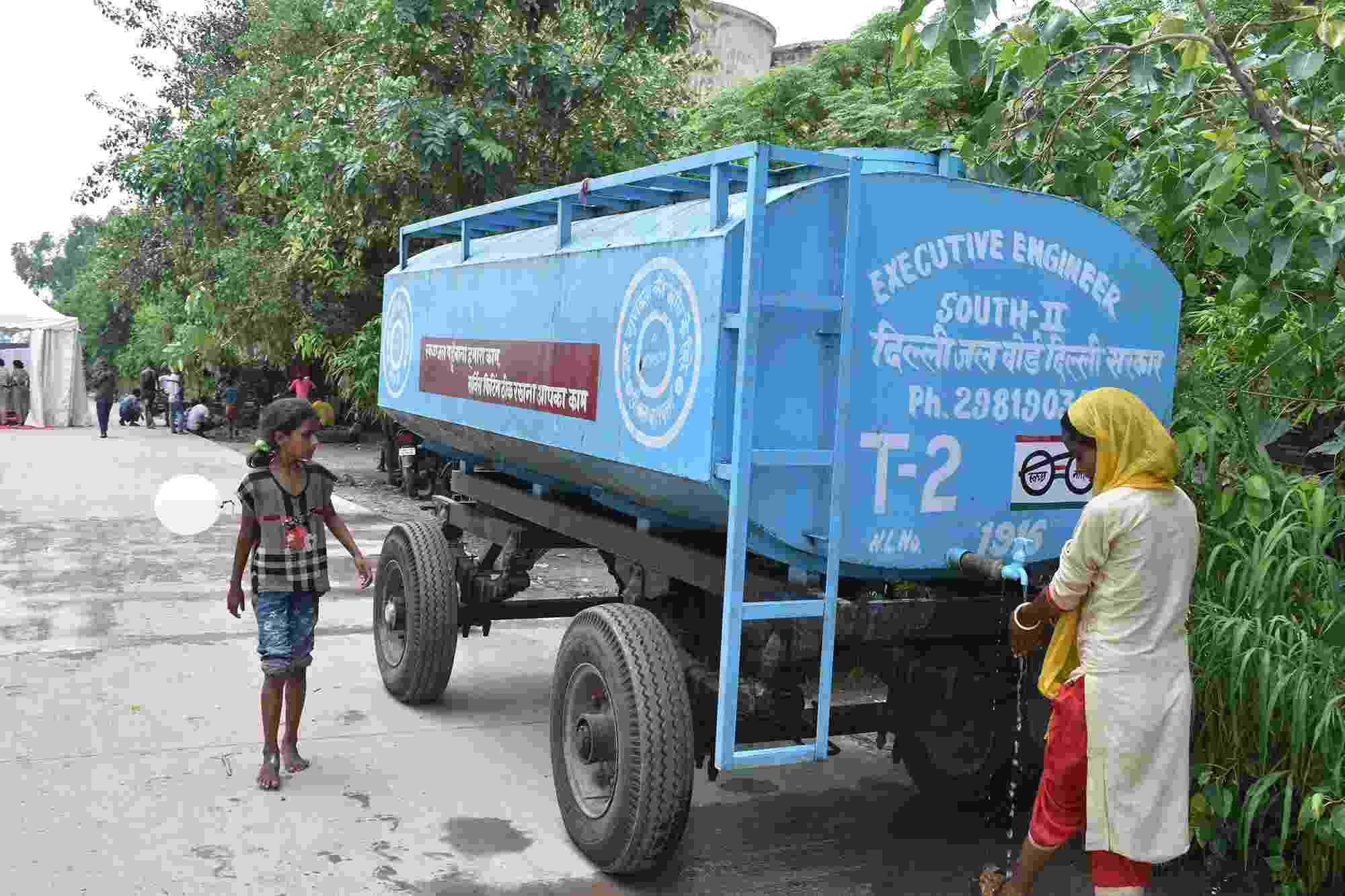Collaboratory update January 2023 | India
The latest news and updates from our India Collaboratory
31 January 2023


The final day of the Hub Assembly in Colombia, November 2022
Our Hub team was unable to gather together for an in person Assembly for 983 days. After such an extended period of time using online methods only to communicate and continue our research, it was fantastic to finally meet again in Colombia. During the Assembly the India team led discussions on principles of water sensitive planning (WSP) across multiple countries, focused on the importance of embedding water at the heart of urban and sustainable planning, and its use as a tool for tackling water security in different contexts.


Water tankers provide drinking water at the Yamuna makeshift flood relief camp
Colleagues from our SPA New Delhi and Newcastle University teams have also recently published a paper on the topic. Titled ‘Water Sensitive Planning for the Cities in the Global South’ and published in Water, the paper explores how a WSP approach recognises the centrality of water in the urban built environment, something often overlooked during urban planning. Primarily developed for western city contexts, a new WSP framework is needed for application in cities in the Global South. In this paper, the authors envision what key principles of this theory would look like, using Delhi as a starting point.
Professor Ashok Kumar, SPA, presented a paper on ‘Processual Components of Water Sensitive Planning for the Cities in the Global South’ at the International Conference on Future is Urban, Ahmedabad. In a session focused on urban planning and resilience, nature based solutions, and capacity building, Prof Kumar shared the team’s research. The SPA team are also developing papers on a number of topics across water values and governance, including water informalities in the NCT of Delhi, and oppositions and windows in water utility privatisation.


Dawn on the Ganga River
Over the past few months members of our India team have participated in a variety of events, conferences, and panel and roundtable discussions. A number of IIT Delhi colleagues attended the American Geophysical Union (AGU) Fall Meeting 2022, where they presented their work ‘Assessing Water Management Pathways for Environmental Flow Management under Uncertain Futures in the Upper Yamuna Basin’. At the India Water Impact Summit, organised by the Centre for Ganga River Basin Management and Studies (cGanga), National Mission for Clean Ganga (NMCG), and the NITI Aayog, Prof A K Gosain (IIT) explored how to establish parameters and set milestones for monitoring river health.
Prof Gosain attended several sessions at India Water Week, an event that brings together multiple stakeholders, government departments, and organisations. The theme for 2022 was focused on water security for sustainable development with equity, and Prof Gosain participated in sessions on aligning water security efforts with nature, the complexities of basin hydrology, and the rejuvenation of the Ganga River. Prof Gosain also attended a roundtable on resilient urban transition, during a series of thematic discussions organised by the World Bank Group (WBG) to collect different perspectives and inputs for the India Country Climate Development Report (CCDR).
Finally, congratulations to Dinesh Kumar from our IIT Delhi team on his scholarship award. He will be spending the next 12 months based with the Hub’s Newcastle University team while he continues his research on water resource management. Our Collaboratory model is designed to create the perfect environment for knowledge exchange and sharing of research both amongst and between our teams, and movement of researchers between partners is crucial in achieving a global understanding of water security challenges.


Take a look at this infographic that captures some of the India team's achievements to date, including key research findings and exciting next steps.



